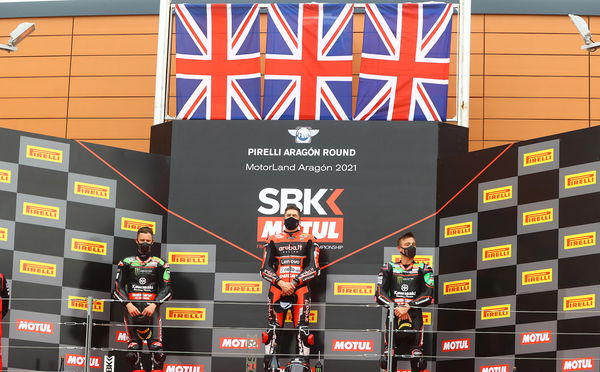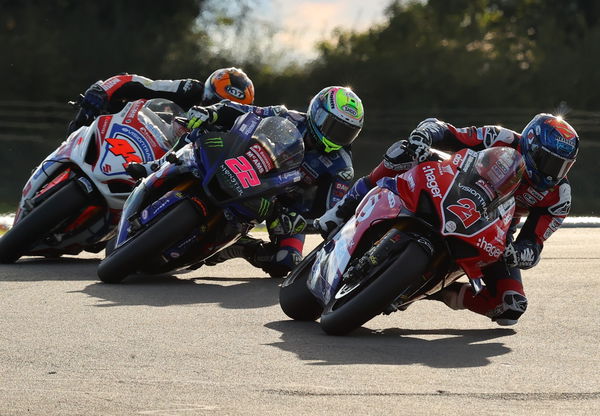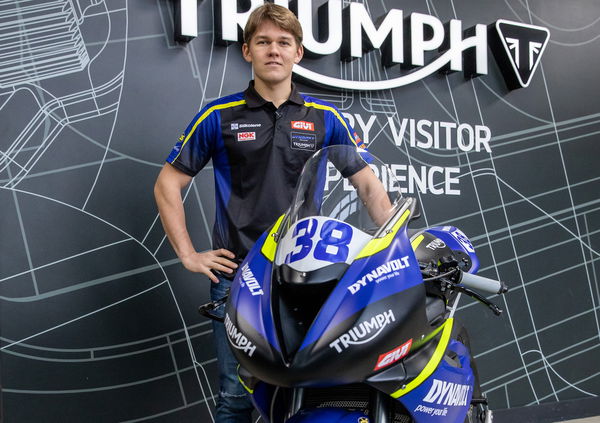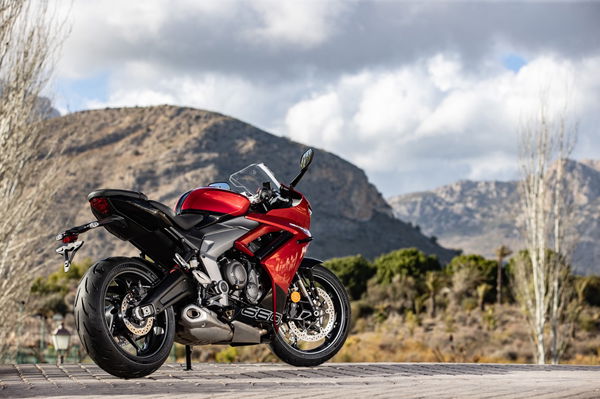Nationality pride | Are British riders really being forced out of WorldSBK?
Britain may be seeing its representation in the 2022 WorldSBK Championship halved, but that doesn't mean Dorna is somehow forcing them out...

If one was to measure their invested interest in the WorldSBK Championship by the number of riders representing your supported nation, then a British fan might well be feeling half as enthusiastic about the 2022 WorldSBK season than they were in 2021.
Indeed, it appears this year’s championship will kick off with ‘just’ three riders competing under the British flag, a slash right down the middle from last year’s six riders.
Of course, it’s unlikely a fan would switch on for the sole reason of national pride and nothing else, but the rhetoric on our social media channels would appear to suggest a growing impression that British riders are being overlooked in favour of international counterparts because they are British.
However, this is almost entirely a falsehood.
Granted, if you were to supplement your WorldSBK viewing with MotoGP then you would feel somewhat more justified that there is certainly a theme when it comes to a rider’s origin with Spain and Italy now accounting for a whopping 16 of the 22 riders, whereas Great Britain heads into a second successive season without a single representative.
In WorldSBK, however, the odds have been stacked in British favour for well over a decade now. It doesn’t need an in-depth analysis to understand why this has been the case - Spain and Italy have fertile and well-funded proving grounds in the GP discipline, whereas in the UK the route up the career path generally favours production-based machinery.
What has changed in WorldSBK, however, is the direction of travel into the series. Back in 2010, there were eight full-time British riders on the grid, each having worked their way up from the domestic scene.
Today, WorldSBK debutants are a mix of experienced racers who have had their time in MotoGP or an increasing number of riders progressing from WorldSSP, another series where there is a thin British representation.
This shallow pool of direct options has been evident for some time, albeit only now seeming more like an exodus as Tom Sykes, Chaz Davies and Leon Haslam drop off the grid.
I’ve seen comments blaming Dorna for wanting to force British riders out in favour of Spanish ones. This is an argument that might hold some water if you were looking at the GP ranks - where the red and yellow flag is everywhere you look - but in WorldSBK it’s a fallacy.
Though the view of a Spanish takeover was perpetuated by Honda’s signing of Iker Lecuona and Xavi Vierge from the Grand Prix paddock, it only brings the total number of Spanish riders in WorldSBK to three, the same number as the UK and Italy. Moreover, given HRC is based in Spain, there is logic behind this move anyway, while there were exactly the same number of Spanish riders competing in 2021.
Back in the day when WorldSBK was run by Infront, there were cries of (not unfounded) Italian favouritism, but the WorldSBK of 2022 is set to be the most international on record.
Of the 21 riders confirmed thus far, there will be 14 represented nations on the grid, including countries not immediately associated with motorsport, such as San Marino, Malaysia and Belgium. There is even an argument for adding Turkey to this list because though it has generated a huge amount of success in WorldSBK and WorldSSP over the years, it has done so from just a couple of flag bearers.

Why aren’t more British riders getting into WorldSBK?
It’s interesting to see comments accusing Dorna of forcing British riders out of WorldSBK because the truth of the matter is the smaller numbers today are merely reflective of the flood of Union Jack flying riders around a decade ago.
Indeed, one can’t deny Britain has ruled the roost in WorldSBK for a long time, both in terms of volume and quality.
A British rider has won the WorldSBK Championship on 14 occasions, with USA next on nine and Australia some way back in third with five.
It’s the same in terms of race wins; British riders have won a mammoth 298 WorldSBK races, followed by USA on 119 and Australia on 118.
However, not only has the direction of travel to WorldSBK changed, the smoothness of navigating the path from a series such as the British Superbike Championship has also evolved.
Rightly or wrongly, BSB’s shift in philosophy towards its own regulations that don’t align with the WorldSBK has had a definite impact. To argu MSVR’s point, the BSB generates national viewing figures and spectator numbers that put WorldSBK to shame at times, so the motivation is there to ensure a more cost-effective business model that prioritises the closeness of the racing over being the pinnacle of motorcycle racing.
However, the gap between BSB and WorldSBK has become harder to bridge, prompting factory WorldSBK teams to glance towards the more like-for-like MotoGP or the more noticeable WorldSSP when selecting riders.
![Tarran Mackenzie, Tommy Bridewell - [pic credit: Ian Hopgood]](https://cdn.visordown.com/field/image/AK8I4357.jpg?width=600)
Age is but a number
It’s also worth pointing out that the average age of the top ten in WorldSBK is a more youthful 28 years-old, compared with BSB at 31-years old. In fact, only three of the WorldSBK top ten in 2021 were in their 30s, while the number in BSB stood at six.
In short, if you are patriotic then one could understand the regret of seeing Britain’s once dominant footprint in WorldSBK whittle down with few obvious riders-in-waiting to replace them.
But more than ever, the WorldSBK Championship is living up to its billing as an international series… and that can surely only be a good thing, right?











